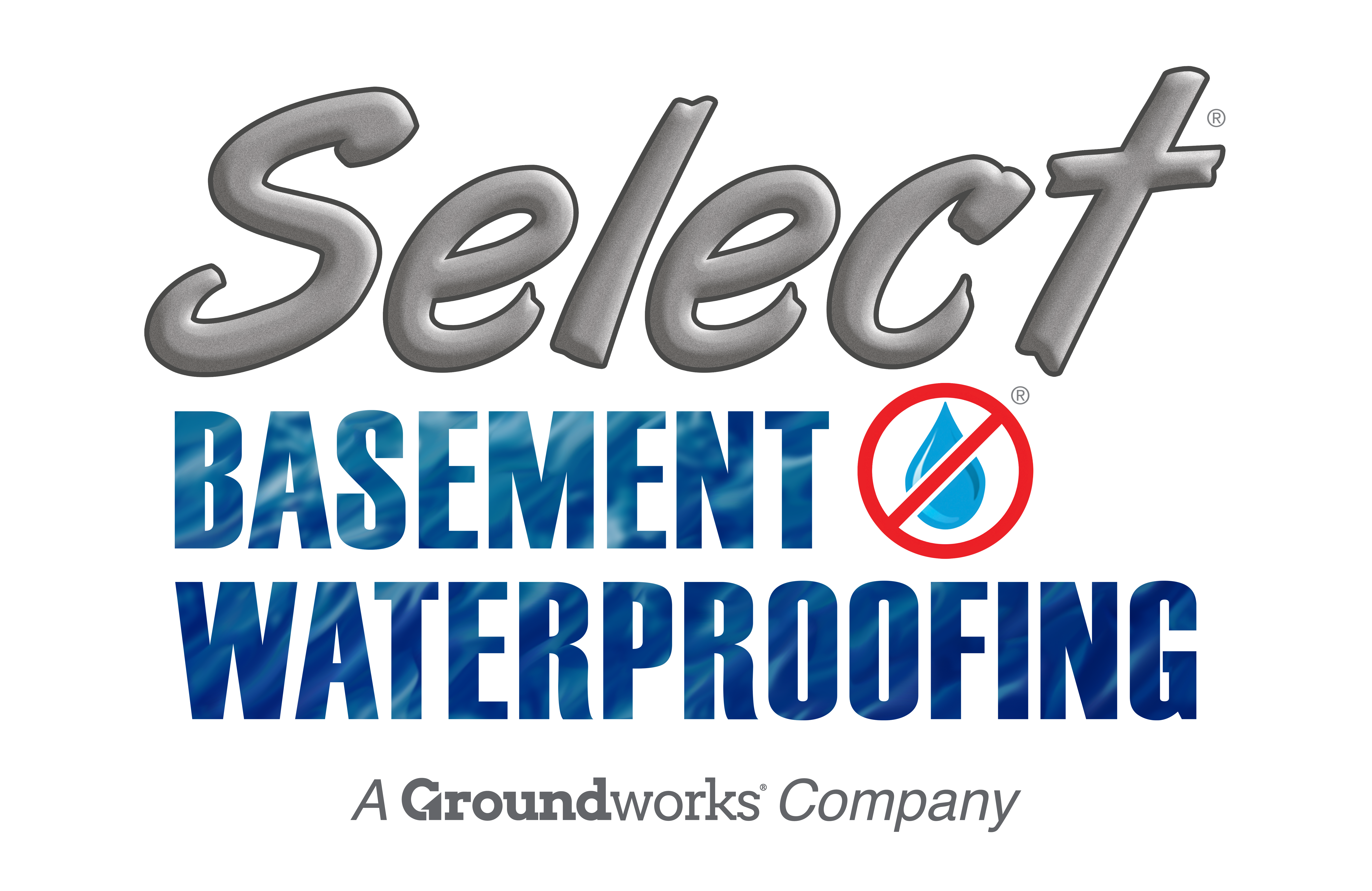Select is joining in on the MADNESS fun that happens in March… Valid now through April 7th, 2014. For more details, visit selectbasement.com or call 732-526-7770.
Go with the CHAMPION of waterproofing in New Jersey!

Select is joining in on the MADNESS fun that happens in March… Valid now through April 7th, 2014. For more details, visit selectbasement.com or call 732-526-7770.
Go with the CHAMPION of waterproofing in New Jersey!
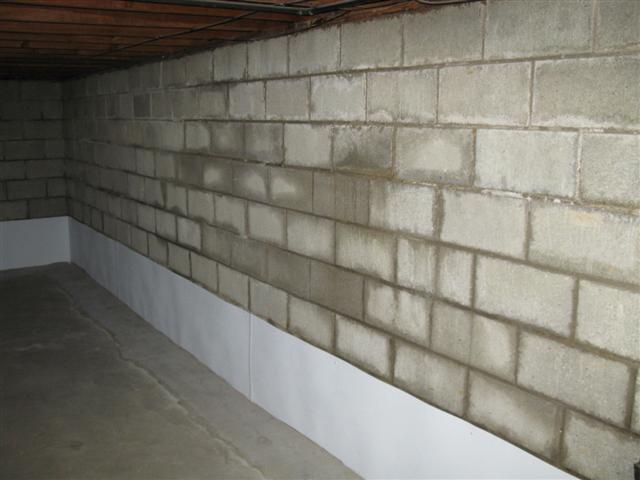
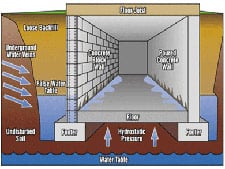
While new home buyers sometimes look at basements as an added bonus, they are very cautious of buying homes with unkempt basements. Maintaining basements through the year is difficult, but with right kind of waterproofing, it can be easily done. When hiring a basement waterproofing contractor, make sure they offer a lifetime transferable warranty. When home shoppers see the foundation is under warranty, this is a great indicator that you have kept up the maintenance on your foundation and home.
A minor fracture found in the mortar joints of concrete block walls may not just be a simple “settling crack”. That may actually be the movement of the wall inward due to pressure from the earth’s clay on the exterior. These cracks on the interior are just the tip of the iceberg as far as damage is concerned. Popular Science tells there can be 3 to 4 times as many cracks to be found on the exterior wall when one is found on the inside. These cracks on the exterior lead to water seepage into the hollows of the block. That moisture, hidden and unseen in the hollows may take a while to leak presentable water on the interior.
These are just a few of the indicators of a much more significant issue. Professional inspections can prevent much of the more significant damage caused from this moisture. An ounce of prevention can save a pound of cure. Basement inspections may not solve the problem, but their diagnosis is the first step in attaining a dry, safe environment. If you would like a professional consultation on your foundation, please contact us.
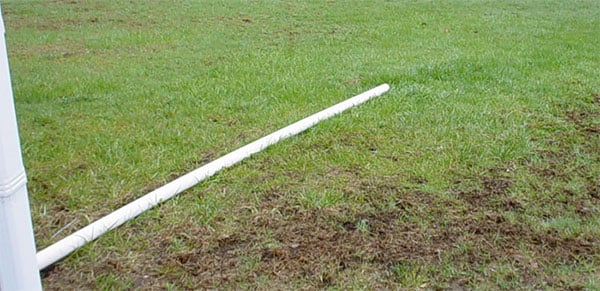
Our sump pump discharge lines are often the last things we consider when we talk about basement waterproofing systems, yet are a very important piece. Your sump pump discharge lines can have a direct impact on how well your basement waterproofing system performs, and should be evaluated to increase system efficiency and prevent backup.
One of the more common things we see with improperly set-up discharge lines is an overabundance of angled fittings. Understandably, some basement and crawl space layouts don’t necessarily allow for a nice, short, straight exit out of the home, but you certainly don’t want a “pipe-rollercoaster” downstairs. This can lead to severely decreased water output, and strain on your sump pump’s motor.
Another item to consider is winter freezing. During the wet Spring months, you may want the water to discharge far away from your foundation, so you extend the line far away. During the winter months however, this can increase the risk of freezing. A frozen discharge line can mean a freshly burned out sump pump, as well as water backing up into your home. Reduce this risk by shortening your discharge line in the winter, and check it periodically.
How often does your sump pump burn out? Share your experience below in the comments! Contact us for a FREE Estimate on sump pump installation.
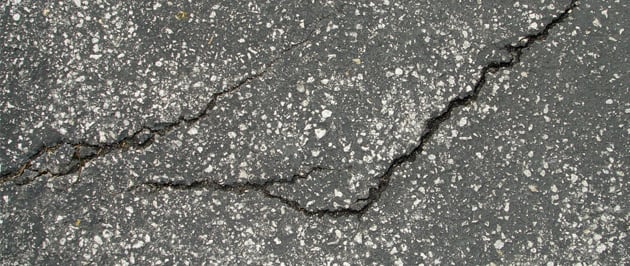
Foundation floor cracks can be found in the majority of homes across New Jersey. The trick is knowing when to take action.
If your home wasn’t built last week, and we’re willing to bet it wasn’t, you’ve probably noticed a few cracks in the foundation floor by now. These are caused by a variety of factors ranging from increased moisture and water pressure, to settlement and structural deficiency. Luckily more serious foundation issues can be identified and prevented if you catch them early enough.
Larger foundation floor cracks can signify a bigger structural issue, especially if both sides of the crack are shifting and moving away from one another. Give your local foundation repair company a call, to be on the safe side.
Okay, sounds gross––we know. But it can happen. Cracks in your foundation floor expose your home to the elements, allowing for a variety of potential intruders. Save the weed killer for your driveway, not your basement.
If so, ensure your primary sump pump is working. Don’t have one? You may need to consider installing an interior french drain/pump system. Check for dark staining as well, this can be a sign of moisture.
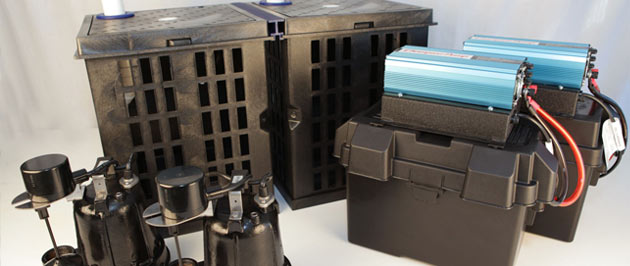
It’s the holiday season and we’ve all got a million and one things on our to-do lists, I know. With all the hustle and bustle of the holidays, who needs to deal with a basement flood, and therefore a basement waterproofing headache? I know I don’t.
That’s all the more reason to take preventative action to make sure you don’t experience any unforeseen headaches or surprises. You see, if your home has experienced water issues in the past, the fact that it’s winter doesn’t mean that your basement or crawl space is much less susceptible to seepage. Only the top layers of soil freeze; water at the basement floor level is still allowed to flow within the warmer soil. This means that your sump pump is still working hard while you’re out shopping.
To greatly reduce the possibility of you coming home to a basement flood, you’re going to want to check on your sump pump. We recommend that you check your pump(s) at least once or twice a month to ensure proper operation.
First thing’s first, test the pumps. To do this, simply fill a 5 gallon bucket with water and pour it directly into the sump basin. Repeat until you see the sump pump discharge the water. If your pump goes off before or shortly after the pump is fully submerged in water, you should be in good shape. If you continue to fill the basin with water without the pump going off, you may want to have it check out by a professional.
Another thing you may want to consider is a battery-operated backup pump. This can really be a lifesaver in the even of a power outage or primary pump failure.
So do your basement a favor this holiday season, and go check on your sump pumps!
